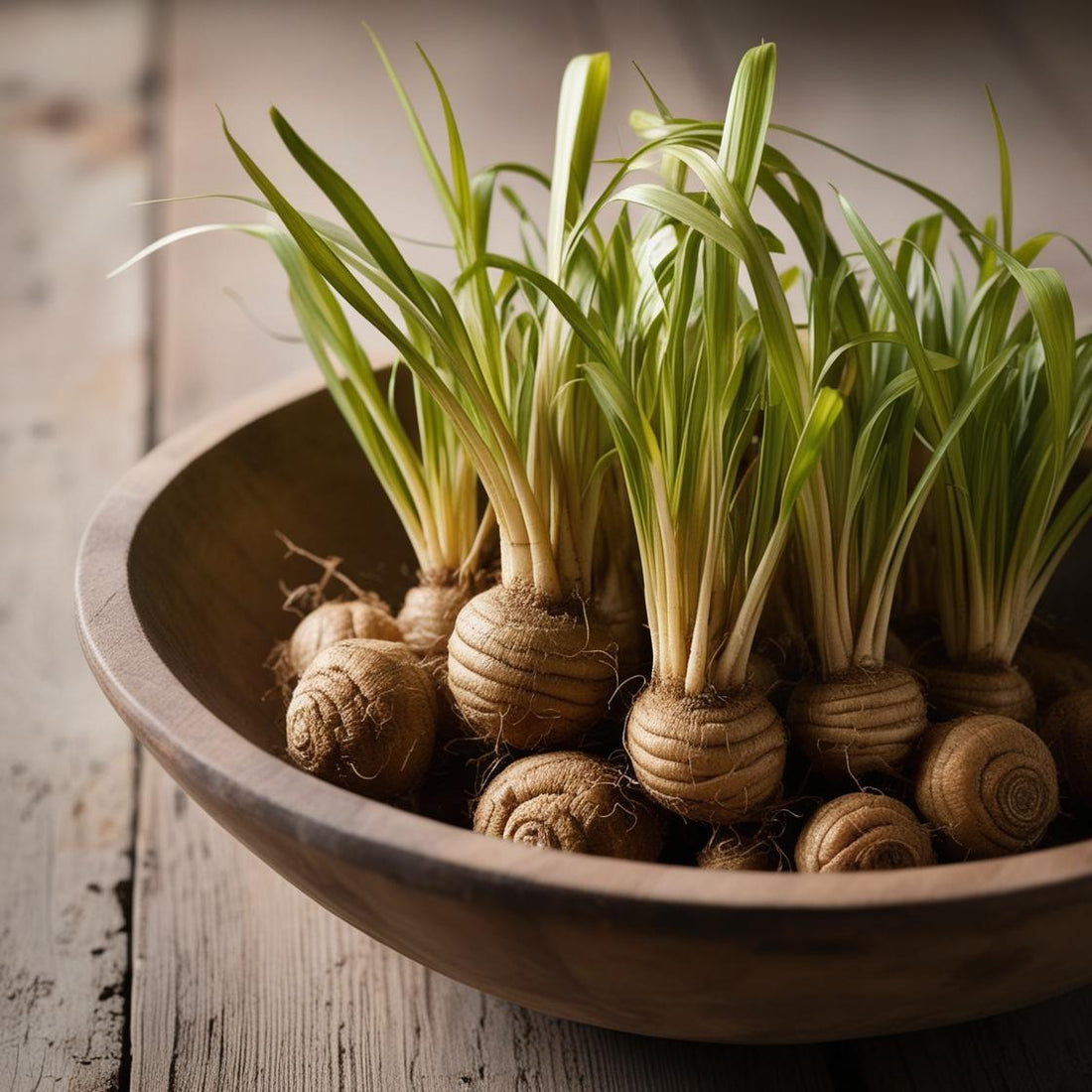Musta, also known as Nutgrass or Cyperus rotundus, is a perennial herb that is widely used in Ayurveda, the traditional system of medicine in India. It is known for its medicinal properties and has been used for centuries to treat various ailments. Musta is a native plant of India and is also found in other parts of Asia, Africa, and the Mediterranean.
Traditionally, Musta has been used for its anti-inflammatory, analgesic, antipyretic, and antimicrobial properties. It has been used to treat digestive disorders such as diarrhea, dysentery, and indigestion. Musta has also been used for respiratory problems, including cough and asthma, as well as for menstrual disorders and urinary tract infections.
Several scientific studies have investigated the medicinal properties of Musta. One study found that Musta has anti-inflammatory and analgesic properties, which could be useful in the treatment of arthritis and other inflammatory conditions (Biswas et al., 2011). Another study found that Musta has anti-diabetic properties, which could be useful in the treatment of diabetes (Kumar et al., 2012).
Musta has also been found to have anti-cancer properties. One study found that Musta extract can inhibit the growth of cancer cells and induce apoptosis, or programmed cell death, in cancer cells (Manikandan et al., 2015). Another study found that Musta can enhance the effectiveness of chemotherapy drugs in treating cancer (Venkatesh et al., 2014).
In addition to its medicinal properties, Musta is also used in Ayurveda as a flavoring agent and is used to prepare various dishes and beverages. It is also used in perfumes, soaps, and cosmetics.
References:
Biswas, S. K., Chowdhury, A., Das, J., & Roy, A. (2011). Acorus calamus and Cyperus rotundus exert anti-inflammatory and antinociceptive effects. International Journal of Pharmaceutical Sciences and Research, 2(9), 2399-2403.
Kumar, A., Lalitha, K., & Nampoothiri, M. R. (2012). Anti-diabetic activity of methanolic extract of Cyperus rotundus in streptozotocin induced diabetic rats. International Journal of Pharmacy and Pharmaceutical Sciences, 4(4), 428-431.
Manikandan, P., Murugan, R. S., & Priyadarsini, K. I. (2015). Cyperus rotundus tubers: Chemical composition, antitumor activity and antioxidant potential. Food and Chemical Toxicology, 86, 171-176.
Venkatesh, P., Brindha, P., Purushothaman, A., & Anitha, K. (2014). Synergistic effect of Cyperus rotundus and docetaxel on cell viability and apoptosis in prostate cancer cells. Asian Pacific Journal of Cancer Prevention, 15(24), 10727-10732.

